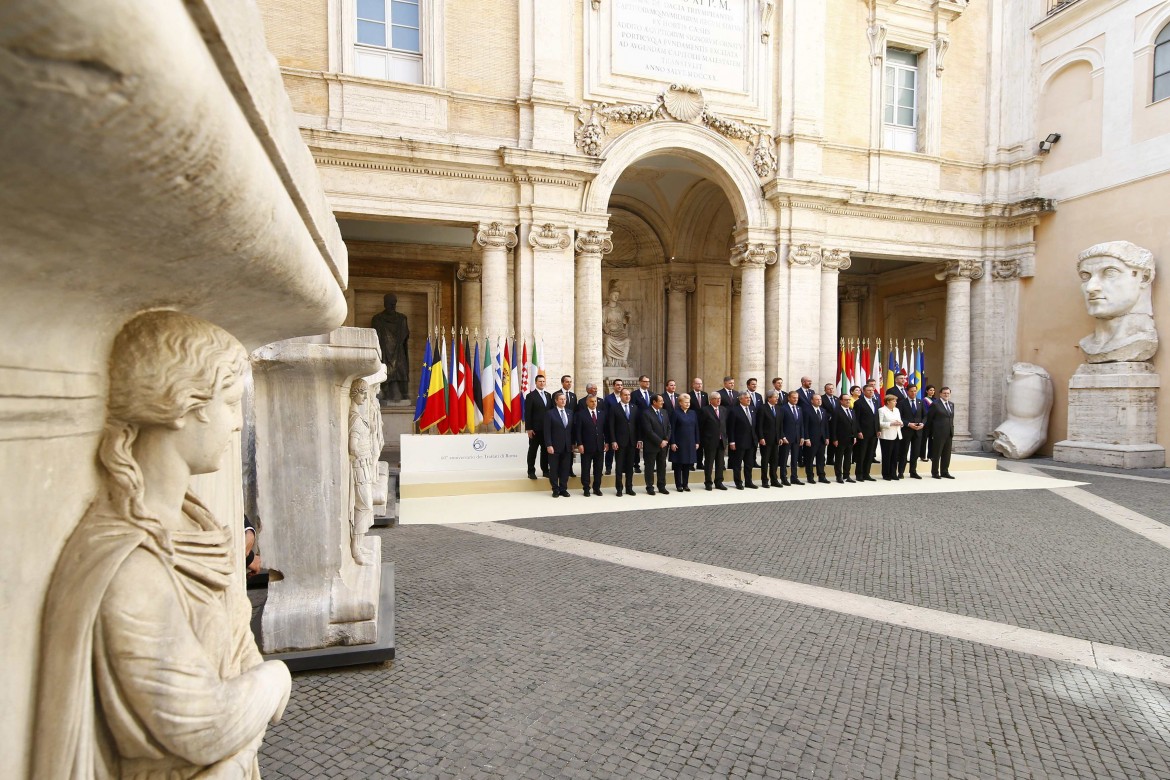Commentary
Standing on the shoulders of giants
The words and rituals of the anniversary were doused with enough rhetoric to cover the lack of solemnity.

The ceremony to celebrate the Treaty of Rome will be remembered for posterity as one of the dwarfs on the shoulders of giants. Today, the Europe built on the rubble of the Second World War finds itself in the hall of the Horatii and the Curiatii at Campidoglio, submerged in the rhetoric of peace while the refugee phenomenon at our borders reminds us that new wars are creating new rubble.
So many events were scheduled in Rome, but on Saturday afternoon the piazzas were empty, leaving the streets occupied by policemen, like never seen before, on every corner of the old town. And of course the massive deployment of law enforcement was covered by every newspaper and television station, which was a tremendous deterrent to wider participation.
So the heart of the popular presence Saturday was not in the vaulted Rome that hosted the European leaders, but it was in Milan where hundreds of thousands of people welcomed the visit of Pope Bergoglio in his pastoral journey through the suburbs to speak of poverty and work, inviting people to “embrace their boundaries.”
The ceremony at Campidoglio did not raise much passion with the official speeches of heads of state and government. The media scene, which should have celebrated the glories of the victorious Renzi in the referendum of Dec. 4, received the quiet acceptance of his successor, who has done his job diligently. As President Mattarella did, who insisted again on the need for a new constitution after having already emphasized in his speech before the joint session the urgency for a reform of the treaties, to give Europe a new Constitution. But it is neither simple nor obvious to find again the root reasons.
The words and rituals of the anniversary were doused with enough rhetoric to cover the lack of solemnity. Everyone spoke of social problems, of the economy that feeds on inequality, but in fact, the promises and commitments to build a social Europe are contradicted by the events of recent years, as can be seen in Greece and its sufferings.
To start a constituent process, citizens should stand up for those values that we Italians have just defended in the referendum held on Dec. 4, when we shielded the Constitution we would like to see reflected in the foundation of another Europe, of another political project. That side that stood together in the referendum was in the streets, with representatives of both the right and the left who delivered speeches that have found expressions across the spectrum, including resurgent nationalism and pro-European principles put to the test by the big sleep of the ruling classes, who are closer to the Horatii and Curiatii than to the spirit of Ventotene.
Originally published at https://ilmanifesto.it/leuropa-si-autocelebra-sperando-nel-futuro/ on 2017-03-26
